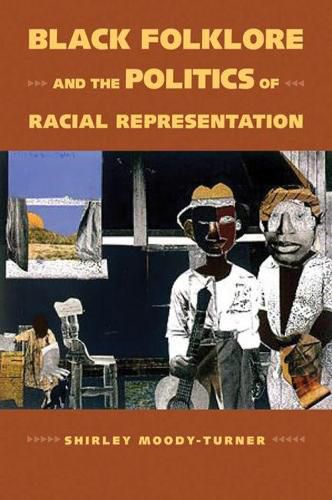Readings Newsletter
Become a Readings Member to make your shopping experience even easier.
Sign in or sign up for free!
You’re not far away from qualifying for FREE standard shipping within Australia
You’ve qualified for FREE standard shipping within Australia
The cart is loading…






This title is printed to order. This book may have been self-published. If so, we cannot guarantee the quality of the content. In the main most books will have gone through the editing process however some may not. We therefore suggest that you be aware of this before ordering this book. If in doubt check either the author or publisher’s details as we are unable to accept any returns unless they are faulty. Please contact us if you have any questions.
Before the innovative work of Zora Neale Hurston, folklorists from the Hampton Institute collected, studied, and wrote about African American folklore. Like Hurston, these folklorists worked within but also beyond the bounds of white mainstream institutions. They often called into question the meaning of the very folklore projects in which they were engaged.Shirley Moody-Turner analyzes this output, along with the contributions of a disparate group of African American authors and scholars. She explores how black authors and folklorists were active participants-rather than passive observers-in conversations about the politics of representing black folklore. Examining literary texts, folklore documents, cultural performances, legal discourse, and political rhetoric, Black Folklore and the Politics of Racial Representation demonstrates how folklore studies became a battleground across which issues of racial identity and difference were asserted and debated at the turn of the twentieth century. The study is framed by two questions of historical and continuing import. What role have representations of black folklore played in constructing racial identity? And, how have those ideas impacted the way African Americans think about and creatively engage black traditions?
Moody-Turner renders established historical facts in a new light and context, taking figures we thought we knew-such as Charles Chesnutt, Anna Julia Cooper, and Paul Laurence Dunbar-and recasting their place in African American intellectual and cultural history.
$9.00 standard shipping within Australia
FREE standard shipping within Australia for orders over $100.00
Express & International shipping calculated at checkout
This title is printed to order. This book may have been self-published. If so, we cannot guarantee the quality of the content. In the main most books will have gone through the editing process however some may not. We therefore suggest that you be aware of this before ordering this book. If in doubt check either the author or publisher’s details as we are unable to accept any returns unless they are faulty. Please contact us if you have any questions.
Before the innovative work of Zora Neale Hurston, folklorists from the Hampton Institute collected, studied, and wrote about African American folklore. Like Hurston, these folklorists worked within but also beyond the bounds of white mainstream institutions. They often called into question the meaning of the very folklore projects in which they were engaged.Shirley Moody-Turner analyzes this output, along with the contributions of a disparate group of African American authors and scholars. She explores how black authors and folklorists were active participants-rather than passive observers-in conversations about the politics of representing black folklore. Examining literary texts, folklore documents, cultural performances, legal discourse, and political rhetoric, Black Folklore and the Politics of Racial Representation demonstrates how folklore studies became a battleground across which issues of racial identity and difference were asserted and debated at the turn of the twentieth century. The study is framed by two questions of historical and continuing import. What role have representations of black folklore played in constructing racial identity? And, how have those ideas impacted the way African Americans think about and creatively engage black traditions?
Moody-Turner renders established historical facts in a new light and context, taking figures we thought we knew-such as Charles Chesnutt, Anna Julia Cooper, and Paul Laurence Dunbar-and recasting their place in African American intellectual and cultural history.